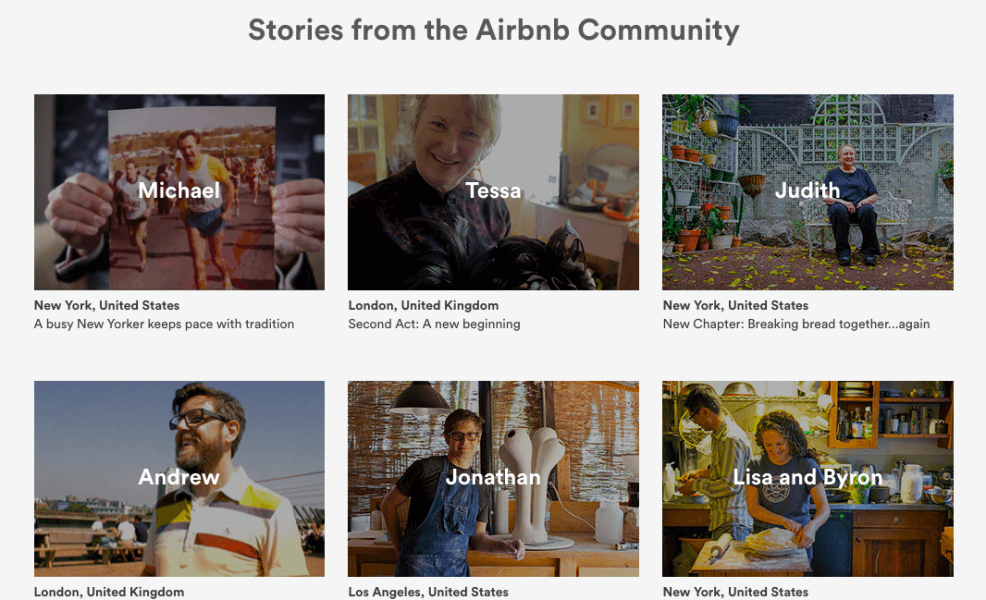
The Importance of Storytelling for Leaders
“Every leader needs a good story.” You have probably heard this before, but did you really think about why this is the case? There is a good explanation for why storytelling is an effective tool for leaders; it makes it easy for people to follow and understand what you do and for what reason. Storytelling helps people connect with you on an emotional level, thus making your purpose more inspirational. Now, let’s see how compelling storytelling can help build credibility for your ideas as the leader.

What is Storytelling?
We have been telling stories since the beginning of our history. We painted stories on walls, wrote them in books, and passed them on from generation to generation. The question is: Why do we like storytelling so much? Or let’s put it this way: “What makes storytelling so essential that it is one of the everlasting social tools?”
Recent research shows that storytelling is one of the primary tools for human interaction since it acts as a bridge to help engage others with our experiences and thus help connect the dots. Basically, using the power of narrative makes it easier to explain how things work, justify our reasoning, and persuade others. Additionally, it is shown that narratives are perceived and processed uniquely than any other kind of information. For example, the same brain regions activate when someone tells a story about an action and when that action is performed. This suggests that stories are processed in the same way as we process first-hand experiences.
Stories are meaningful and give a meaningful first-hand understanding of the occurrences around us. It is an interactive and cooperative tool between the storyteller and the listeners. As one of the strongest communication tools, we can say the use of storytelling would be advantageous in various contexts, including leadership.

Storytelling in Leadership
As a leader, you are the person responsible for engaging and inspiring your team. In other words, you are the one to persuade others of the power of your ideas. As you would also agree, a leader should deliberately think about how to illustrate ideas to their audience. This is exactly when leadership storytelling becomes essential as a communicative tool.
Long story short, good storytellers have an advantage in recruiting the best candidates by presenting a compelling vision, engaging with media by sharing an appealing story to talk about, and raising funding for a project using relatable ideas. Thus, a leader must create meaning in what his/her people do, how they do it, and more importantly, why they do it. With a good explanation of these questions, one can achieve to inspire their audience and target groups. In this regard, stories help people make sense of organizations and create shared knowledge and vision.
Key benefits of leadership storytelling:
- Highlights specific ideas that you would like to encourage in your team.
- Makes hard data more understandable and memorable.
- Easily motivates people by giving inspiration.
- Shares the lessons that you have learned and help people in your team avoid making the same mistakes.
- Overcomes the mental barriers that people have for new ideas.
By clearing the mental barriers that we have when facing new knowledge, you can improve communication, raise awareness, and help find peaceful grounds for sharing values and solving conflicts. This way, you can be the leader of a group with increased motivation and innovation. Overall, we can say storytelling is a powerful, persuasive, and collaborative tool for leaders.

Example Case: Airbnb
Airbnb is one of the recognizable brands that make use of storytelling in their marketing a lot. There is a stories section on their website for homeowners and travelers to share their experiences. With this section, they create a space for people to share what they liked, how they experienced, and why they chose a certain place. As a website visitor and a potential homeowner or traveler, you get to understand someone else’s experience first-hand .
This approach contributes to their sales effectively. This is because potential users find a chance to connect with other people and with the Airbnb community. This gives security to the potential customer by making the enjoyable experiences more realistic and possible for them as well. If you apply this example in the leadership context, the idea is basically the same; to convince someone to be on your side, you need to make sure that the idea appeals to them.

The Role of Emotional Storytelling in Persuasion
On top of all the other duties in hand, as the leader, you are also expected to be the persuasive one. You are seen as the face of your group and you are the one to be in contact with most external sources. Thus, you must know how to give a good story with a good emotional context. In this regard, using storytelling and emotions well would help you to become more persuasive since storytelling centers around emotions and this makes it easy to reach people. Emotions help people to feel and empathize with each other, and by sharing your story in your true words, you can easily engage the audience in your narrative.
There is a lot of scientific work which sheds light on how stories change our attitudes, beliefs, and behaviors. For example, a group of researchers found that when a threshold level of attention is gained, the audience can start to share the emotions of the characters in the story. Moreover, character-driven emotional stories are found to be very effective at providing an understanding of the key points the speaker wishes to make while also leading to a better recall of these points. Therefore, in terms of making an impact and inspiring people, I would advise leaders to start their presentations with an emotional and attractive story that people can relate to. By doing this, you can capture your listeners’ hearts and their brains. In other words, you can be a great persuasive leader.
3 Cognitive Biases to Create a Compelling Narrative
Now that we are aware of the significance of narrative in successful leadership, it is time to explore some of the cognitive biases that would be useful to keep in mind when telling your story. Do not forget, just like storytelling, cognitive biases are also deeply rooted in our nature. So, turning their presence to our advantage would be helpful to succeed in your leadership role. On this subject, there are some biases that I would specifically like to mention and explain. Let’s have a look at four of three biases that affect the way we tell stories as leaders.
Narrative Bias
We have the urge to look for meaning in unpredictable or unknown events. With no clear pattern, our intuitive minds come up with explanatory stories that are coherent and easy to grasp. Narrative bias refers to this pattern-seeking tendency and our automatic preference for stories to explain random happenings. As a leader, we can say that this cognitive bias works on your side. You can create great stories and make it easy for your audience to understand your aims and expectations. You can inspire them by making the missing parts more solid and basically by just filling the gaps with the right piece of information.
Let’s think about this scenario together. You want to buy stocks from a company, but you know nobody around you is using their products. Based on this knowledge, you assume that if no one around you uses it, the product is bad and not investment-worthy, right? This also brings you the notion that it will not stay strong in the markets and probably not grow in value either.
You create this story by connecting the dots automatically. However, you should realize that you have not yet checked the market nor the sales data for this specific product. Instead, you just assumed a bad stock performance based on the patterns you tried to find. In this case, a good leader would achieve to fill in the gaps for the possible stock buyers by sharing the right information in the right way with the right audience at the right time. Basically, by creating a narrative for the company and its products.
Bizarreness Effect
Bizarre sentences are more attractive and memorable relative to common, usual sentences. In leadership storytelling, the bizarreness effect explains why extraordinary information makes stories much easier to recall: We tend to keep memories that are novel.
Of course, as the leader, I would not recommend you to create all these strange stories which are unrealistic and unbelievable, but rather suggest you spice your stories up with interesting facts about your journey. Let’s have a look at this example together. There are two leaders giving a talk on how they started their businesses.
Leader 1: I started this journey a while ago, right after I graduated from university. When we first started the business, just like everyone else, I had hard financial times but eventually figured a way out. Now, I am very happy about where I am…
Leader 2: I started this journey a while ago, right after I was kicked out of university due to failing grades. I have never believed in the idea that exams could determine your life success, so I did not put emphasis on getting an A or F. This is why I decided to start my own business and here I am; happy and stronger than ever.
Which story do you think is more interesting to listen to? I would say the story from Leader 2. This is because there is bizarre information about his failure at school that you normally do not expect from a reputable leader. This information makes the story more interesting and attractive, and at the end of the day, the one to remember.
Self-Relevance Effect
The self-relevance effect refers to the importance of personal relevance in sustaining an audience’s interest in any given narrative. We tend to better remember information that we can link to ourselves. For example, if I give you a whole bunch of adjectives here: beautiful, smart, jealous, confident, trustworthy, kind, decisive, easy-going, brave, broad-minded, helpful, hard-working, emotional, faithful, gentle, energetic, honest, and flexible. Which ones would you recall after spending 2 seconds reading this sentence? Probably the ones that you can associate your personality with. This is how the self-relevance effect works in short.

When it comes to storytelling as a leader, you should keep in mind that the self-relevance effect might be helpful. For example, if you know your audience – in this case, the audience might be anyone, from your employees, your customers to your potential collaborators – you can adjust your story accordingly and make it more personalized based on their interests and expectations. This way, they would be more interested in what you are saying and who you are. Thus, you and your story would stay in their memories for a longer time.
The Long Story Short
Yes, every leader needs a good story. Storytelling is one of the strongest communication tools that help audience follow and understand what you do and for what reason. It also connects you with your listener on an emotional level, thus making you more persuasive.
- Character-driven emotional stories are effective at explaining key points and for a better recall.
- By using narrative bias you can inspire your audience by filling the gaps with the right piece of information.
- You can make your stories more appealing with bizarreness effect by spicing your stories up.
- The self-relevance effect helps you with personalizing your story based on audience’s expectations.
If you want to learn more about behavioral insights, read our blog or watch 100+ videos on our YouTube channel!
About Neurofied
Neurofied is a behavioral science company specialized in training, consulting, and change management. We help organizations drive evidence-based and human-centric change with insights and interventions from behavioral psychology and neuroscience. Consider us your behavioral business partner who helps you build behavioral change capabilities internally.
Since 2018, we have trained thousands of professionals and worked with over 100 management, HR, growth, and innovation teams of organizations such as Johnson & Johnson, KPMG, Deloitte, Novo Nordisk, ABN AMRO, and the Dutch government. We are also frequent speakers at universities and conferences.
Our mission is to democratize the value of behavioral science for teams and organizations. If you see any opportunities to collaborate, please contact us here.
Sources
Geraci, L., McDaniel, M. A., Miller, T. M., & Hughes, M. L. (2013). The bizarreness effect: evidence for the critical influence of retrieval processes. Memory & cognition, 41(8), 1228-1237.
Kilaru, A. S., Perrone, J., Auriemma, C. L., Shofer, F. S., Barg, F. K., & Meisel, Z. F. (2014). Evidence‐based narratives to improve recall of opioid prescribing guidelines: a randomized experiment. Academic Emergency Medicine, 21(3), 244-249.
Speer, N. K., Reynolds, J. R., Swallow, K. M., & Zacks, J. M. (2009). Reading stories activates neural representations of visual and motor experiences. Psychological science, 20(8), 989-999.
https://hbr.org/2014/10/why-your-brain-loves-good-storytelling
https://www.psychologytoday.com/us/blog/science-choice/201612/what-is-narrative-bias
https://www.psychologytoday.com/intl/blog/brain-wise/201411/your-brain-stories
https://www.forbes.com/sites/estherchoy/2020/01/26/what-is-leadership-storytelling/?sh=277de90c7b17
https://thedecisionlab.com/insights/business/the-power-of-narratives-in-decision-making/
